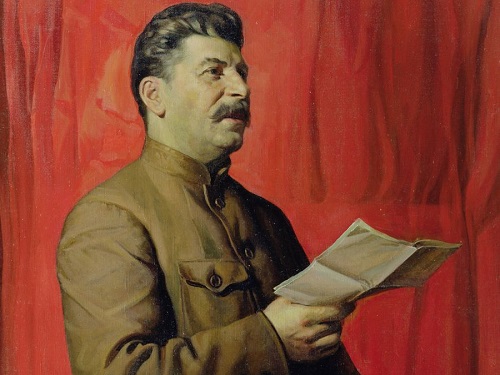
If Dean Dettloff’s “The Catholic Case for Communism” were intended to be thought-provoking, it raises only one question: Why did America magazine facilitate this mendacious PR exercise?
Editor Fr. Matt Malone, S.J.. felt a need to explain “Why we published an essay sympathetic to communism.” (Read our analysis of the original article here.) Fr. Malone likened the article to the magazine bashing Senator Joe McCarthy, which he said took place after America “spent much of the previous 50 years loudly denouncing communism.”
First of all, the articles are not comparable. Condemning a mistaken attack upon evil is not the same as defending evil. Second, for a true apples-to-apples comparison, America would need to publish Dettloff’s article 50 years after radically changing its editorial course.
This apology for totalitarianism comes from the same publication that turned to the as-yet-unelected Alexandria Ocasio-Cortez into a Catholic spokeswoman, despite her dissent on non-negotiable aspects of the Catholic faith – not the least of which is socialism.
A few months after AOC’s article, America published a pronouncement that “democratic socialism is compatible with Catholic social teaching.” It ran a glowing obituary of Fidel Castro, which underrepresented his political executions by at least a factor of 10, ignored his regime’s racism, and made scant mention of his persecution of Catholics and other Cubans after 1964. And in 2013, it uncritically reported that Nikita Khrushchev’s son, Sergei, believed that his father (in America‘s words) embodied “Christian humanist values,” without reference to his mass executions, harassment of the church, or that unpleasantness in Budapest in 1956. (It also launched a tendentious attack on Fr. Robert Sirico’s view of labor unions in 2012.)
Fr. Malone explains that he found the pro-Communist article “worth reading.” After all, “This is a journal of Catholic opinion, and Catholics have differing opinions about many things.”
This is something of a rhetorical conflation to excuse the publication of an article that directly violates the Magisterium. Fidelity to Catholic teaching separates “a magazine run by Catholics” from “a Catholic magazine.” America holds itself out as the latter but defends itself as though it were the former.
One is tempted to believe America magazine published “The Catholic Case for Communism” for the same reason it might publish “The Catholic case for pornography” or “The Catholic case for infanticide.” The sheer shock value of the headline might assure clicks. The magazine should know that this, too, is subject to the law of diminishing returns.
To his credit, Fr. Matt writes that “markets, for all their downsides, are the greatest force for economic empowerment that the world has ever seen.” He notes this is not the full scope of his economic thought; still, he deserves credit for this. But the question is deeper than the right side of economics; it is about whether a Catholic publication will print an article about the most destructive force in Church history without as much as a single critical remark.
One wonders what dissent America will publish next. Communism substitutes economic determinism for the exercise of moral free will; Nazism substitutes biological determinism. Would America find its equally dissenting view “worth reading”?
Fr. Malone closes his piece by launching a preemptive attack on his critics, calling their statements “male bovine fecal matter.”
That scatological reference does little to advance the dialogue and debate which is supposedly so deeply embedded in the magazine’s ethos that it must print Communist propaganda out of fairness. But that malodorous description reminded me of a warning from God about another false system: “Get out, my people, as fast as you can, so you don’t get mixed up in her sins, so you don’t get caught in her doom. Her sins stink to high Heaven; God has remembered every evil she’s done” (Revelation 18:4-5, The Message Bible).
Would that America magazine remembered Communism’s human rights violations, the laws of economics, or the faith of its own church.
(Photo credit: Public domain.)

